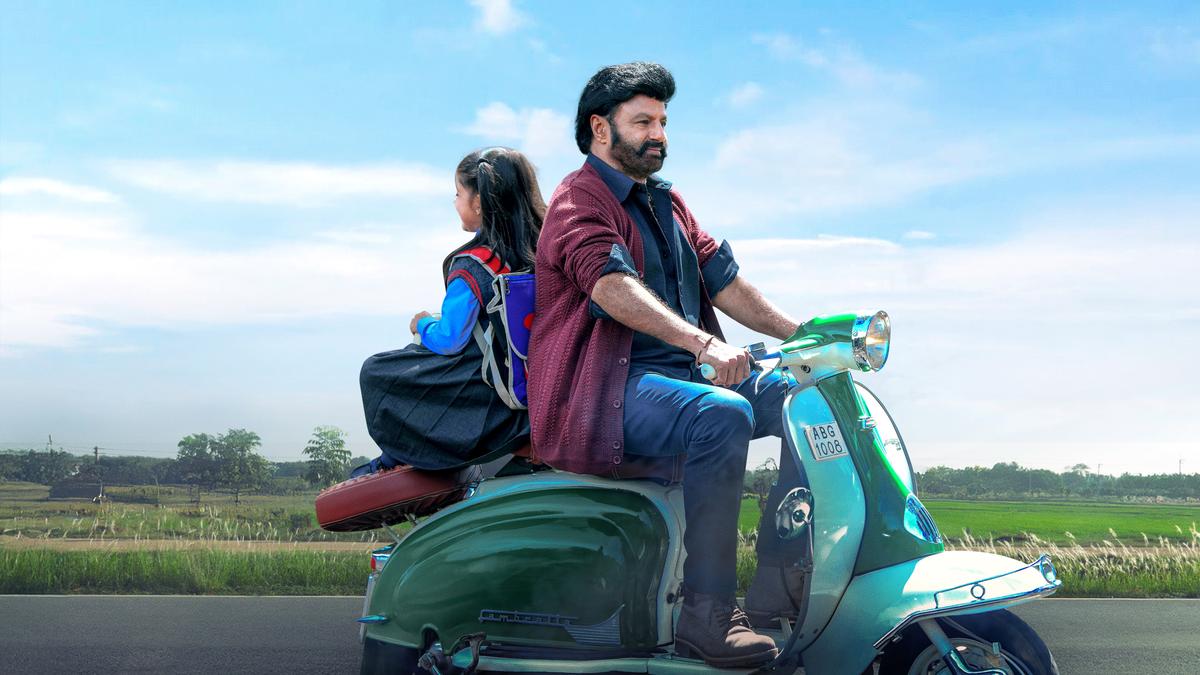
‘Daaku Maharaaj’ movie review: Bobby Kolli, Balakrishna’s film is more style than substance
The Hindu
Balakrishna's Daaku Maharaaj offers a fresh take on the star's persona, but falls short due to lackluster execution.
Balakrishna’s resurgence in recent films such as Akhanda and Bhagawant Kesari can be attributed to filmmakers Boyapati Sreenu and Anil Ravipudi making the star more relatable to the masses beyond his larger-than-life quirks. While the ethos of a typical Balakrishna film has not changed drastically, the fresh narrative styles have breathed a new lease of life into time-tested templates.
In Daaku Maharaaj, it is evident that director Bobby Kolli was keen on a new visual aesthetic to a star-led vehicle. The action is stylised and slick; there is a genuine effort at charismatic world-building and the ‘punch lines’ are minimal (going by the standards of popular Telugu masala potboilers). Hero worship is woven into the narrative rather than appearing forced.
Despite these merits the film falls short, owing to its lack of conviction in the execution. It neither plays to the galleries nor embraces the new dictum wholeheartedly. A handful of sequences draw attention and can be termed paisa vasool, but the film on the whole is not satisfying.
Set in a hill station near Chittoor, Andhra Pradesh, the film takes its time to establish the context for the messiah’s arrival. A girl named Vaishnavi, the granddaughter of an influential man, is under threat from a local gangster duo. A convict on the run — ‘Daaku’ Maharaaj — assumes the identity of a driver, Nanaji, to guard the family. What connects Maharaaj’s violent past to the goons and the girl?
The film impressively does away with an ego-boosting intro song to announce the hero’s entry. S Thaman’s over-enthusiastic music score and the crisp dialogues between the action sequences do the job of offering a glimpse into the hero’s aura. Much like in Balakrishna’s earlier films (Jai Simha, Narasimha Naidu and Bhagawant Kesari), a young girl serves as the emotional link for the star to unleash his fury.
When the proceedings get too heavy, there is silliness in the garb of humour for some comic relief (Satya is wasted) and romance, where Urvashi Rautela gets spanked by Balakrishna in a song named after his trademark phrase ‘Dabidi Dibidi.’ In between all the gore and insipid lighter moments, the child’s character brings some innocence (though caricaturish at times) to the mix.
However, the masala-laden proceedings soon become superficial. There are too many inconsequential characters that do not threaten the protagonist; the villainy lacks meat and the narrative beats around the bush for too long. The restlessness partly subsides with the flashback episode, in which a government officer transforms into a dacoit.













